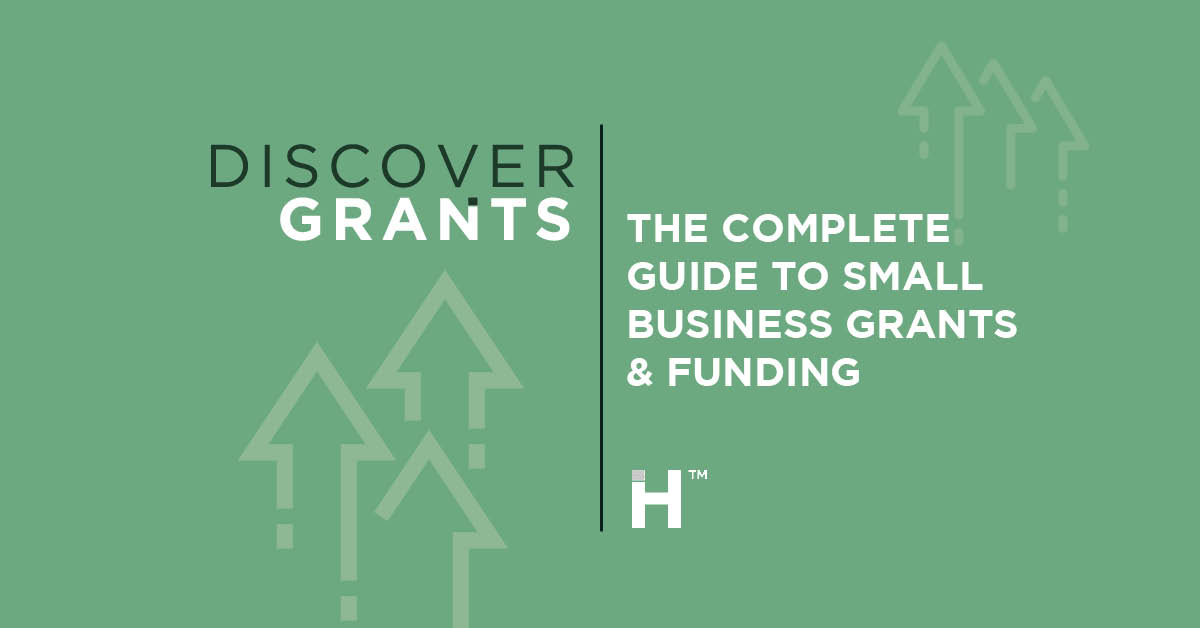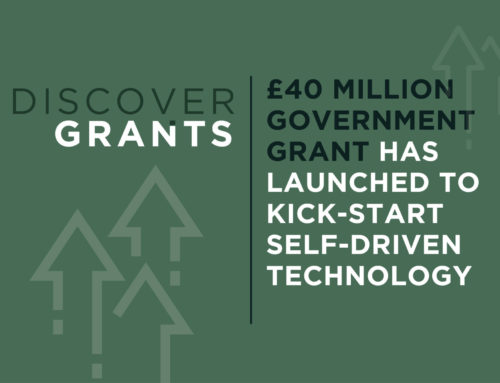A guide to small business funding opportunities in the UK
If you’re looking into what small business funding options are available in the UK, you’ve come to the right place. Finding the right small business funding opportunities for your business can take time. You want to find the grant that’s right for your company and bid for funding effectively. This can help optimise your chances of success.
Grants for businesses can come in a wide range of sizes, across various sectors. From start-up business grants to council business grants and grants for charities to cash grants for small businesses. Our small business guide includes various relevant small business grant funding opportunities. They include various funding opportunities that are available at the time of publication (May 2021) and how to apply.
Where can I find new small business grants?
There are multiple sources offering new small business grants across the UK. There are government grants, cash grants for small businesses, private grants, and grants from local authorities. The only issue is it can take time to track down the right funding opportunity for your small business.
Our Grant Tracking Service hosts all business grant and funding opportunities for UK businesses. Our team manually track grants from over 1,500 data points. Once they’ve identified an opportunity, they upload each one to our Discover Grants platform.
You are then able to filter the results by keyword, sector, and price. This allows you to find the perfect new small business grants for your company.
The best part – it’s completely free. All you have to do to gain access to all new small business grants is register your details. Whether you’re a start-up, SME, growing business or large organisation – there are funding opportunities available for you. This could be an Innovate UK grant, freelance grant, Business Gateway Grants or Grants for businesses in the UK.
Examples of small business grants
Business Recovery Grants are available throughout the UK via your local Growth Hub. There are 38 Growth Hubs across England. They are local public and private sector partnerships led by the Local Enterprise Partnerships (LEPs).
Other small business support grant opportunities include:
SME Brexit Support Fund
The UK government has provided a £20 million SME Brexit Support Fund. It’s administered by PricewaterhouseCoopers (PwC) for HMRC. It’s a small business support grant to help SMEs access training on:
- New customs procedures and how to complete customs declarations
- Managing customs processes
- Using customs software and systems
- Specific import and export related aspects including VAT, excise and rules of origins.
What’s available?
Up to £2,000 is available for training or a professional advice grant. They are to help your business to continue to trade safely and securely with the EU.
Eligibility criteria
Your business must:
- Have up to 500 employees
- No more than £100 million annual turnover
- Be established in the UK for at least 12 months before submitting the application. Or currently hold Authorised Economic Operator status
- Only import or export goods between Great Britain and the EU, or move goods between GB and Northern Ireland.
Note: if you already import or export goods from or to a non-EU country, you are not eligible for this grant.
How to apply
- You must create an account on their website. You’ll need to have basic company information available as well as your contact details.
- Complete an application form.
- Submit evidence of applicable expenditure.
Application deadline: 30th June 2021 or earlier if all funding is allocated before.
If you’re lost as to where to begin with your grant proposal, a Grant Writing Consultant can help. Outsourcing your proposal to a grant consultant an save you a great deal of time, improving your chance of success. They are experts in writing grant proposals and know how to best convey your company to a funder.
Technology Developer Accelerator Programme (TDAP)
The Technology Developer Accelerator Programme is a small business technology grant for SMEs. It has the aim of developing low-carbon vehicle technologies over an 18-month period.
What’s available?
You could be eligible for up to £135,000 combined grant funding, business mentoring and technical support.
Eligibility criteria
SMEs that own IPs for a product or technology with the potential to reduce environmental impacts of the transport sector.
Innovate UK Smart Grants
Smart Innovate UK is a small business technology grant that provides funding competition for Smart Tech. The funding will enable research and development projects into a new product, service or idea.
What’s available?
There are two types of funding available for projects of varying lengths:
- Projects of 6 – 18 months must have a total eligible project costs between £25,000 and £500,000. They can be single or collaborative.
- Projects of 19 – 36 months must have a total eligible project costs between £25,000 and £2 million. They must be collaborative.
There are different grant levels available with some covering up to 60% of your project costs. This can help prove your idea is sound or allow you to find a potential market for your project. You can also get funding for up to 45% to create and develop a prototype.
Eligibility criteria
Applicants can come from any area of technology and can be applied to any part of the economy. This is including, but not limited to:
- Creative industries
- Science or engineering
- The arts, design and media.
Your project must take the following into account in order to be eligible:
- Include at least one SME as the lead or a collaborative grant claiming partner
- Start by 1st November 2021 and end by 30th November 2024
- Follow specific rules depending on its duration.
How to apply
The application process is split into three sections:
1. Project details
This can include:
- Application details
- Equality, diversity and inclusion
- Research category
- Project summary (up to 400 words)
- Public description (up to 400 words)
- Scope (up to 400 words).
2. Application questions
The application questions can be up to 400 words long and will include:
- What is the business need, technological challenge or market opportunity behind your innovation?
- What approach will you take and where will the focus of the innovation be?
- Who is the project team and what are their roles?
- What does the market you are targeting look like?
- How’re you going to grow your business, increasing your productivity in the long term as a result of the project?
- What impact might this project have outside the project team?
- How will you manage the project effectively?
- What are the main risks of this project?
- What impact would an injection of public funding have on the businesses involved?
- How much will the project cost and how does it represent value for money for the team and the taxpayer?
3. Finances
Each organisation in your project must complete their own:
- Project costs
- Organisation details
- Funding details.
Application deadline: 11:00am Wednesday 26th May 2021.
Small business grants in Northern Ireland
There are a number of small business grants available in Northern Ireland. These include:
COVID-19 Supply Chain Resilience Development Framework
The COVID-19 Supply Chain Resilience Development Framework (SCRDF) is only open for businesses based in Northern Ireland.
What’s available?
Financial assistance of up to £25,000 towards 50% of the first 12 month’s salary costs. This is for a new dedicated supply chain role within your business. Advisory support is also available, and a 3-step graduated framework of support that aims to:
- Provide specialist advisory support to help manufacturers and internationally tradable services
- Identify supply chain risks and appropriate mitigations
- Identify supply chain opportunities
- Develop supply chain capability.
Eligibility criteria
The Supply Chain Resilience and Development Framework is open to any manufacturing or tradable service business that meets the following:
- Provides internationally traded services or manufactures products
- Based and operating in Northern Ireland
- Be able to demonstrate how your supply chain has been impacted due to the COVID-19 pandemic or EU Exit
- Has a total supply chain spend of over £100,000 in the 2019/20 financial year
- Complete State Aid declaration in the event that financial support for a new key supply chain worker is determined
- Either: demonstrate your business has or will reach a turnover of £250,00 per year in the next five years. While achieving at least 25% of those sales outside of Northern Ireland. Or be an existing Invest NI customer.
Businesses are not eligible to apply if they:
- Are already in receipt or intending to gain other government support for the project
- Don’t provide commercial services and/or products
- Are involved in activities that Invest NI considers to be ineligible. Or as involving an unacceptable reputational risk such as gambling, tobacco products or adult entertainment.
- Have less than £100,000 total supply chain spend in the 2019/20 financial year
- Cannot demonstrate they are a viable business.
How to apply
If you meet the eligibility criteria you need to complete an online enquiry form. You will then be contacted by someone from the SCRDF team. You will need to provide the following details for your application for this small business grant in Northern Ireland:
- Your business’ name
- Contact name and number
- Business address and postcode
- Number of people you employ in Northern Ireland
- Details outlining how your supply chain has been impacted due to COBID-19 or Brexit
- Signed company accounts to evidence your business’s minimum total supply chain spend of over £100,000 in the 2019/20 financial year.
Application deadline: 5pm on Friday 28th May 2021 or earlier if the available advisory resource, budget is fully allocated.
The New Apprenticeship Incentive Scheme
The New Apprenticeship Incentive Scheme is available to support employers to support the recruitment of apprentices. This small business grant is only available to Norther Ireland-based businesses.
What’s available?
As an employer, you’ll be eligible for up to £3,000 for each new apprenticeship opportunity. However, you must create them from 1st April 2021 to 31st March 2022. It will apply to all new apprenticeship opportunities, including apprentices that have been made redundant:
- Payment 1 – £2,000 after the 90 days retention following the start of a new paid apprenticeship
- Payment 2 – £1,000 after 200 days retention following the start of a new paid apprenticeship
Eligibility criteria
The scheme is open to Northern Irish employers that take on an apprentice. The apprentice must be participating in either the Department for the Economy funded:
- ApprenticeshipsNI
- Higher Level Apprenticeship programmes.
How to apply
If you’re eligible, you can apply by filling out the applicant claim form and submit it via email.
Small business grants in Wales
There are a number of small business funding and grant opportunities available in Wales. These include:
Caerphilly Business Start-Up Grant
This small business grant in Wales helps newly formed businesses in all sectors. The applicant must be setting up in the Caerphilly County Borough. Businesses must not have started trading before application and approval. A discretionary grant can provide up to 50% of eligible project costs to a maximum of £500.
Funding can be used to go towards:
- ICT equipment
- Marketing
- Capital equipment
- Website development
- Training building works to business premises.
How to apply:
The applicant must provide a business plan with a minimum of a one-year cash flow forecast, projected project and loss. Two comparable quotes are also required for each capital item. The business must provide full-time employment for the applicant.
Arts Council Wales – Create
Create funds the development and creation of high-quality arts experiences. Applications open on the 6th May 2021. The Arts Council Wales is working in partnership with a National Lottery Arts Funding programme, Create.
What’s available?
Applicants can submit proposals for funding between £500 to £50,000. Funding can be spent to provide opportunities for individuals and organisations to produce and present their best work. Grant applications for over £10,000 will be considered in three funding rounds.
The funding can go towards the:
- Research and development
- Creation of work
- Presentation, exhibition and touring
- Festivals
- Community engagement work
- Participation activity
- Training or professional development to enhance creative practice
- Business development or re-modelling (but not start ups).
Eligibility criteria
This fund is open to both organisations and individuals who are based and operating in Wales.
Each application will need to demonstrate how they support one or more of the following areas:
- The Welsh language
- Nurturing creative talent
- Developing partnerships to realise artistic ambitions in imaginative ways
- Equalities and diversity – advancing Council’s specific priorities around D/deaf and disabled people, ethnically and culturally diverse people
- Reaching underrepresented communities, culturally, geographically, socially and economically
- Strengthening the capability and resilience of the arts to be more dynamic and sustainable.
Application deadline: 3rd of June 2021 at 5pm
Note: You need to allow a minimum of 6 working weeks between the deadline date and start date for your project.
To summarise, there are plenty of small business funding opportunities in the UK. There’s always an opportunity to submit small business grants applications for your business. You should focus on finding a grant that fits your business, not the other way around. Remember that persistence is key when applying for business grants, and if at first you don’t succeed, try again.
5 tips to help you apply for new small business grants
1. Make sure you’re eligible
There is no point in starting a new small business grant response if you’re not eligible. It sounds simple, but you’d be surprised how often this happens. You should read the grant documents and eligibility criteria thoroughly before you start. Furthermore, you should make sure that the opportunity matches your business. Ask yourself:
- Do the funder’s aims and objectives match your own?
- Do you need to match the amount of funding?
- Are they offering the amount of funding you require?
A great way to decide if you should go for new small business grants is by using a SWOT analysis. You should assess the:
- Strengths
- Weaknesses
- Opportunities
- Threats
Once you’ve established that it’s an opportunity worth going for, you can start planning your response. It’s best to start planning as soon as possible. Working back from the submission date can help.
2. Be clear and concise in your proposal
You should be writing your new small business grants clearly and concisely. Your response should be persuasive as you should be convincing the funder that you deserve the funding.
You should be hitting the word counts as close as possible. They’re there for a reason. If a funder thinks a question response should be 800-word – write as close to 800 words as possible. Additionally, you should not go over. If you write a 1000-word response, it will demonstrate that you are unable to follow instructions. If you’re unable to follow word-count instructions, how can they trust you with their money?
Stick to the formatting guidelines. Funders can be pernickety about the format of proposals. Again, ignoring this will show that you simply can’t follow instructions. If you ignore this but your competitors follow the instructions, you may be disregarded. So, it’s best to follow them to the letter.
Make the layout as compelling as possible. Nicely laid out responses will win you bonus points with the evaluator. Break questions down into subheadings and bullet points. This will be favoured over blocks of text.
3. Include evidence
Including a business plan, facts and statistics can strengthen your response for new small business grants. If you make a statement, back it up with evidence. This can show that you’ve done your research. Including hard numbers and research you’ve done yourself can help optimise your application.
4. Proofread before you submit
Always proofread your grant application before you submit it. You only get one chance to make a first impression. A proposal riddled with spelling and grammatical errors won’t look professional.
If you’ve spent days working on your proposal, wait a day or two before reading over it. This will allow you to look at it with a fresh pair of eyes. You’ll be better able to spot any mistakes this way. Additionally, you can ask a colleague or a friend to look over it. They can check it’s in line with the specification and avoid any errors.
You should do at least a two-stage editing and proofreading session before submitting. This is why it helps to plan your time and complete the proposal before the submission deadline. This way, you can make any amendments you may spot before you submit. You should factor this into your planning and time management.
Before you submit your proposal for new small business grants, you should ask yourself:
- Is anything unclear?
- Could something be explained further?
- Am I answering what they’re asking?
- Am I rambling at any point?
- Is there any awkward language?
- Am I justifying why I need the funding?
5. Always ask for feedback
It shouldn’t come as a surprise that new small business grants are highly competitive. This is why you shouldn’t be disheartened if you don’t always secure the grants you apply for. Asking for feedback from the evaluators can help you improve for next time. They can point out where your response was weak or strong and give you constructive feedback.
Additionally, if you’re still struggling with your response, you can outsource a grant application to Grant Writing Consultants. They can help optimise your chances of success. They know how best to formulate your response and your business to funders. Grant Writers are experts in what they do and know how to tailor your response to the specification.
So, now you know where to find new small business grants. Hopefully, our five tips will help you see increased success when applying for new small business grants. If you find yourself stuck or overwhelmed – we can help.
Need help with writing your grant application?
Our Grant Writing Service is for businesses who want to start applying for grants, but don’t know where to begin. If you don’t have the resources or the time in-house to write a winning grant – we can help. Our Grant Consultants have over 60 years of experience in bidding for funding and grants. They can take care of the whole thing for you – they’ll even submit it on your behalf.
Get in touch to find out how we can help your business grow!
Our Grant Tracker service is now open. It hosts all the latest grant opportunities in the UK from 1,500 data points. Opportunities are manually tracked, enabling for accurate keyword labelling, optimising your search for the perfect grant.
You can sign up today!





